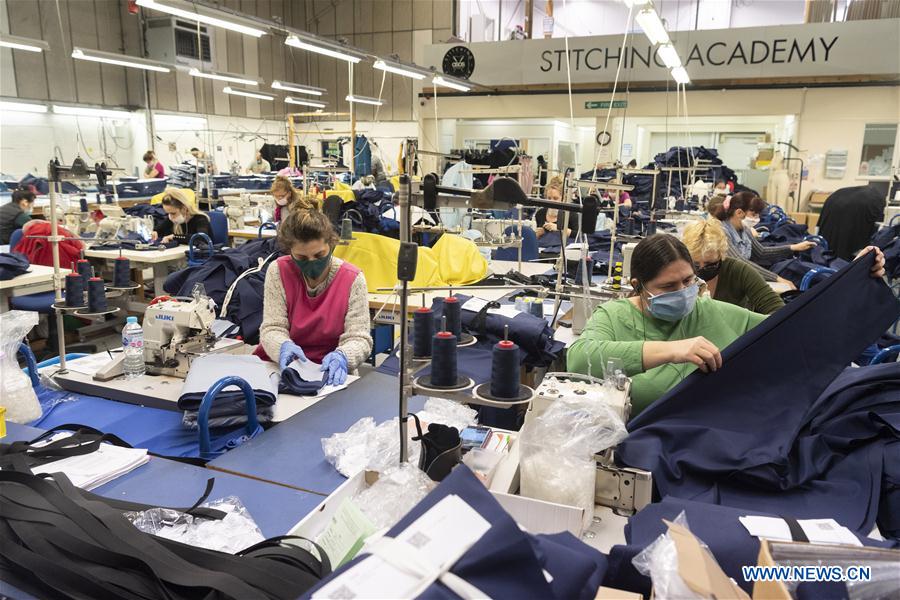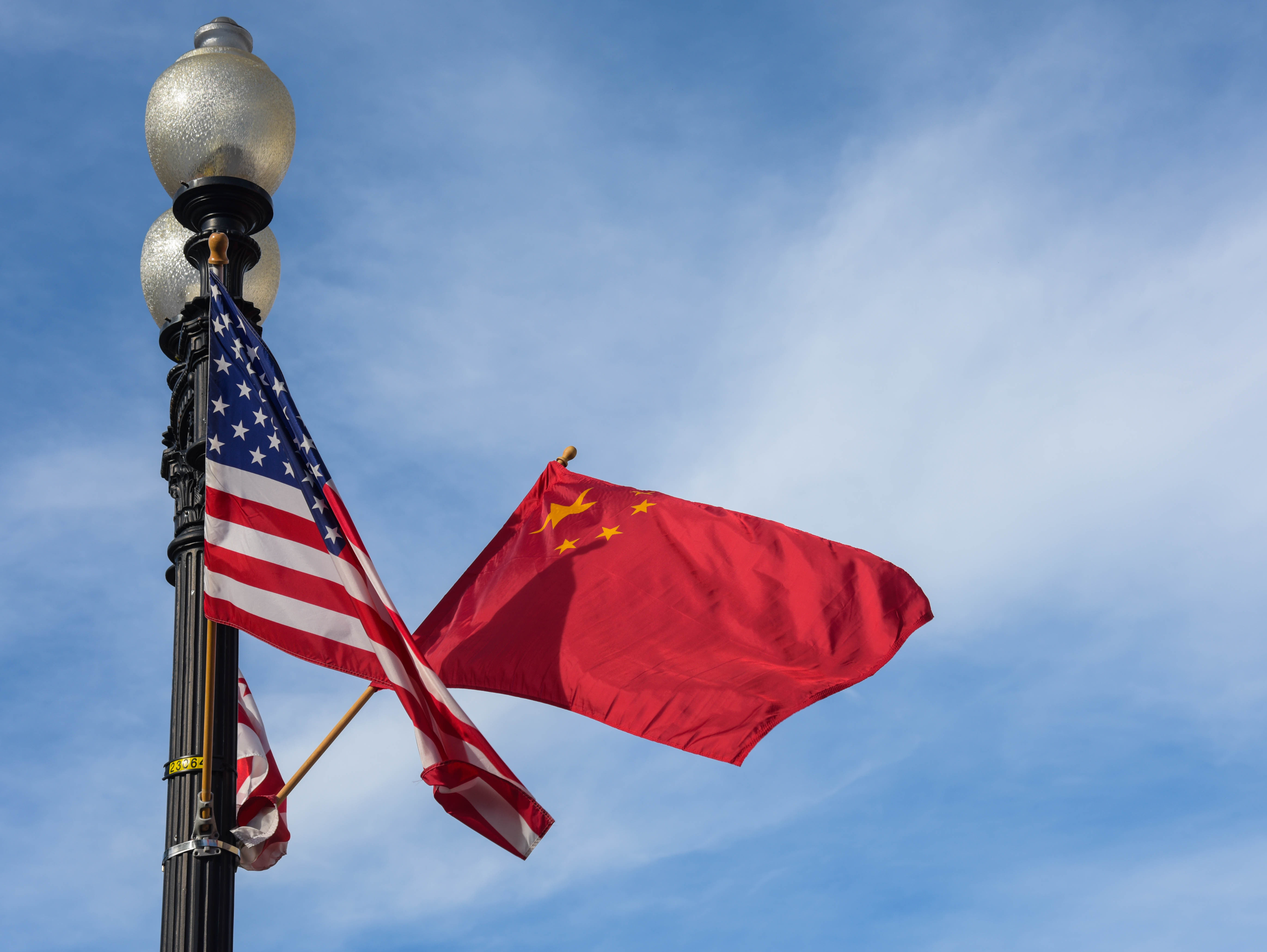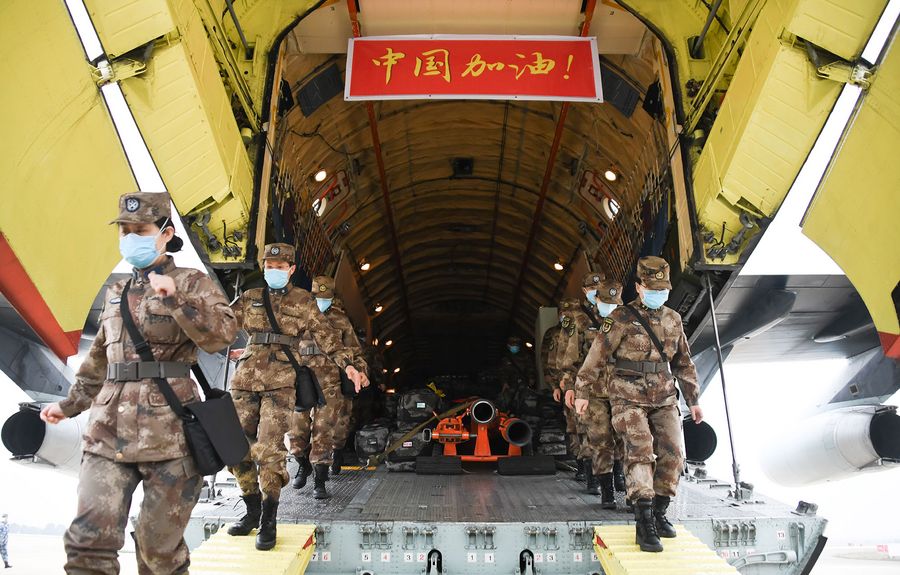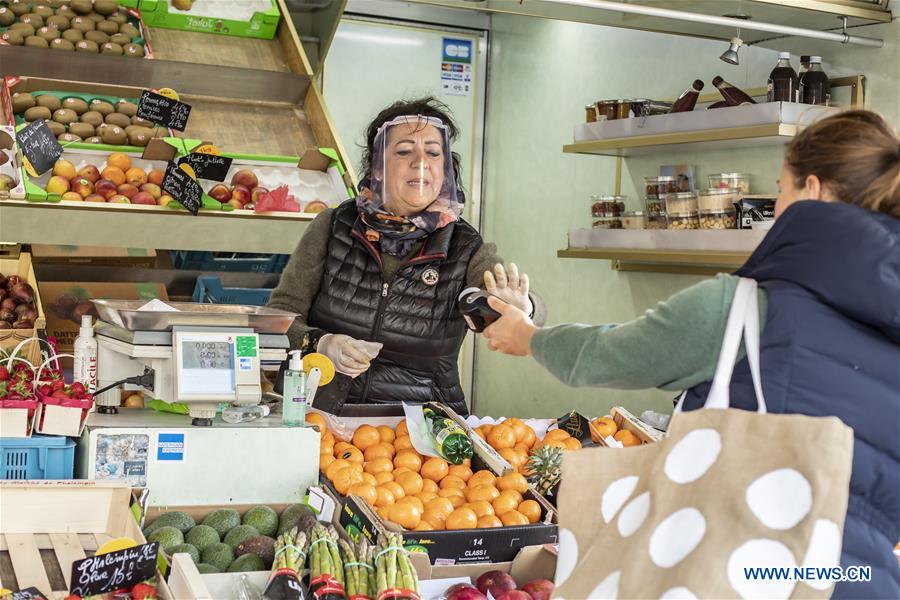"We should allow markets to function, markets to clear and the supplies to go to those most in need," said the World Bank president.
WASHINGTON, April 17 -- Global COVID-19 deaths surpassed 150,000 with over 2.2 million infections on Friday as international institutions are intensifying their collective efforts on battling the pandemic.
A total of 150,948 people have died of the disease as of 3:30 p.m. (1930 GMT) among 2,214,861 cases worldwide, according to the Center for Systems Science and Engineering (CSSE) at Johns Hopkins University.
The United States suffered the most fatalities at 34,575 as its total cases topped 683,000. Italy recorded 22,745 deaths and Spain reported 19,613 deaths. France and the United Kingdom also reported over 10,000 deaths, according to the CSSE.
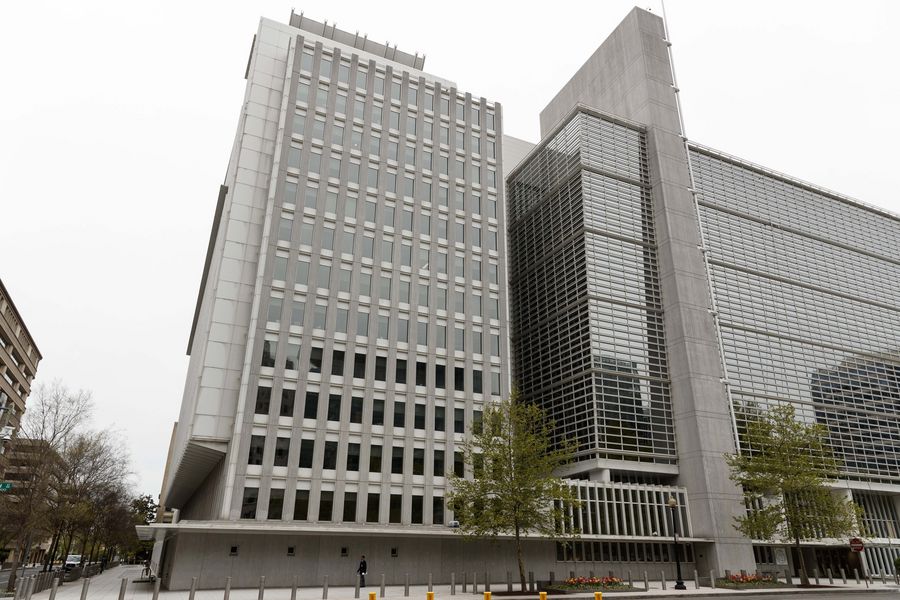
Photo taken on April 17, 2020 shows the World Bank headquarters in Washington D.C., the United States. (Photo by Ting Shen/Xinhua)
The World Bank Group (WBG) is expected to launch health emergency programs in over 100 countries by the end of April to support the fight against COVID-19, with 64 already in operation, President David Malpass said Friday.
The WBG will work to deploy as much as 160 billion U.S. dollars over the next 15 months, tailored to the nature of the health, economic and social shocks that countries are facing during the pandemic, Malpass told a virtual press conference during the Spring Meetings of the International Monetary Fund (IMF) and the WBG.
Other multilateral development banks (MDBs), such as Asian Development Bank, and Inter-American Development Bank, have committed as a group to roughly 80 billion dollars over this period, bringing the total funding from MDBs to 240 billion dollars, Malpass said.
The World Bank president said he is pleased that Group of Twenty (G20) countries have recently decided to provide a suspension in debt service to bilateral creditors during the crisis, calling it "a powerful fast-acting initiative that can bring real benefits to the poor."
Noting that China is one of the big creditors, Malpass said China's support in the international agreement to allow a moratorium of debt repayments for the poorest countries is "important" and was "very welcome."
In response to a question from Xinhua regarding protectionism amid the pandemic, Malpass said big countries need to step forward and pledge not to use the crisis as a reason to close or block the markets.
"We should allow markets to function, markets to clear and the supplies to go to those most in need," said the World Bank president, adding that China is exporting medical supplies to the rest of the world, which is "very welcome."

